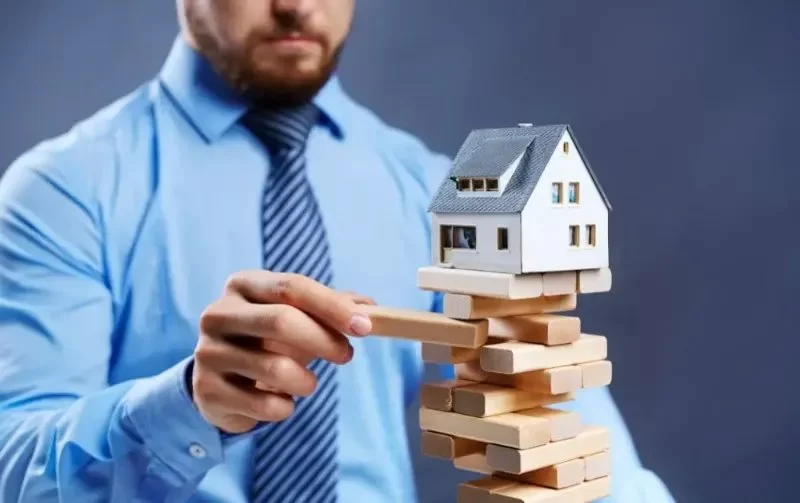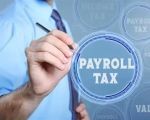
Landlord Liability for Unsafe Conditions
- 1. Understanding Landlord Liability
- 2. Common Unsafe Conditions in Rental Properties
- 3. Landlord's Responsibility for Repairing Unsafe Conditions
- 4. Legal Consequences of Ignoring Unsafe Conditions
- 5. How Tenants Can Protect Themselves from Unsafe Conditions
1. Understanding Landlord Liability
Landlords have a legal obligation to maintain their rental properties in a safe and habitable condition. This means that they are responsible for ensuring that the premises meet certain safety standards, and they must address any unsafe conditions promptly. If a landlord fails to uphold these responsibilities, they may be held liable for injuries or damages that occur as a result of unsafe conditions on the property.
The Implied Warranty of Habitability
In many jurisdictions, landlords are bound by the implied warranty of habitability, which guarantees that rental properties are fit for living. This warranty includes maintaining the property in a condition that ensures the safety of tenants. If a landlord violates this warranty by neglecting necessary repairs or failing to address hazardous conditions, they may be held liable for any resulting harm.
2. Common Unsafe Conditions in Rental Properties
Unsafe conditions can take many forms, from physical hazards to issues that affect a tenant’s health. Some of the most common unsafe conditions landlords should address include:
1. Structural Hazards
Cracks in walls, unstable staircases, or a weakened foundation can pose significant risks to tenants. These structural hazards can lead to injuries if not addressed, such as falls or even collapse. Landlords must ensure the stability of the structure and repair any damage promptly.
2. Electrical Issues
Exposed wires, faulty wiring, or malfunctioning electrical panels are serious fire hazards. Landlords are responsible for ensuring that electrical systems are safe and comply with local building codes. Neglecting electrical safety can lead to serious consequences, including fires or electrocution.
3. Plumbing Problems
Leaky pipes, broken water heaters, or improperly functioning sewage systems can create unsafe living conditions. Water damage can lead to mold growth, which presents health risks. Landlords should address plumbing issues immediately to prevent further damage and safeguard tenants’ health.
4. Lack of Security
Inadequate security measures, such as broken locks, poorly lit entryways, or non-functioning surveillance cameras, can make tenants vulnerable to criminal activity. Landlords are obligated to ensure that proper security measures are in place to protect tenants from potential harm.
5. Pest Infestation
Rodents, insects, or other pests can compromise a tenant’s health and safety. A landlord must take action to eliminate infestations promptly, as pests can carry diseases, cause allergies, or even damage property.
3. Landlord's Responsibility for Repairing Unsafe Conditions
Landlords are generally required by law to repair unsafe conditions within a reasonable amount of time after being notified by the tenant. If the tenant reports an issue that poses a risk to their safety or well-being, the landlord must take immediate action to fix it or make temporary repairs to reduce the hazard.
Failure to Repair
If a landlord fails to repair unsafe conditions in a timely manner, they may be held legally responsible for any injuries or damages that occur as a result. In some cases, tenants may have the right to withhold rent, repair the issues themselves and deduct the cost from rent, or even break the lease without penalty if the unsafe conditions are not addressed.
Tenant’s Right to Notice and Action
Tenants have the right to request repairs from the landlord and to receive timely responses. In many cases, tenants should provide written notice of the unsafe conditions, which helps protect them legally if further issues arise. If a landlord continues to neglect necessary repairs, tenants may seek legal action for damages or lease termination.
4. Legal Consequences of Ignoring Unsafe Conditions
Ignoring unsafe conditions in a rental property can lead to serious legal consequences for the landlord. Below are some of the potential outcomes:
1. Personal Injury Lawsuits
If a tenant or visitor is injured due to unsafe conditions, the landlord may be sued for personal injury. For example, if a tenant falls due to a broken staircase or is injured by faulty electrical wiring, the landlord could be held liable for medical expenses, lost wages, pain and suffering, and more.
2. Rent Withholding or Lease Termination
In some cases, tenants may have the right to withhold rent or terminate the lease if the landlord fails to address unsafe conditions. This is especially true if the landlord has violated the implied warranty of habitability by not keeping the property in a safe and livable condition.
3. Fines and Penalties
In certain jurisdictions, landlords who fail to maintain safe living conditions may face fines or penalties imposed by local housing authorities. These fines are often part of efforts to enforce building codes and health regulations.
4. Loss of Reputation and Tenants
Neglecting repairs can damage a landlord’s reputation, which may make it difficult to attract future tenants. Word-of-mouth from dissatisfied tenants can lead to vacancies and loss of income, especially if the landlord is known for unsafe or poorly maintained properties.
5. How Tenants Can Protect Themselves from Unsafe Conditions
Tenants can take several steps to protect themselves when renting a property with unsafe conditions. Here are a few key tips:
1. Document Everything
Always document unsafe conditions as soon as you notice them. Take photos, keep a written log of your communications with the landlord, and send a formal written request for repairs. This documentation can serve as evidence if legal action is necessary later on.
2. Know Your Rights
Understand your rights as a tenant. Familiarize yourself with local landlord-tenant laws and the implied warranty of habitability in your area. Knowing your rights helps ensure that you can take appropriate action if the landlord fails to address unsafe conditions.
3. Seek Legal Advice
If your landlord refuses to repair unsafe conditions or if you have suffered injuries due to unsafe conditions, seek legal advice. A lawyer can help you navigate your options, including taking legal action or withholding rent until the issue is resolved.








